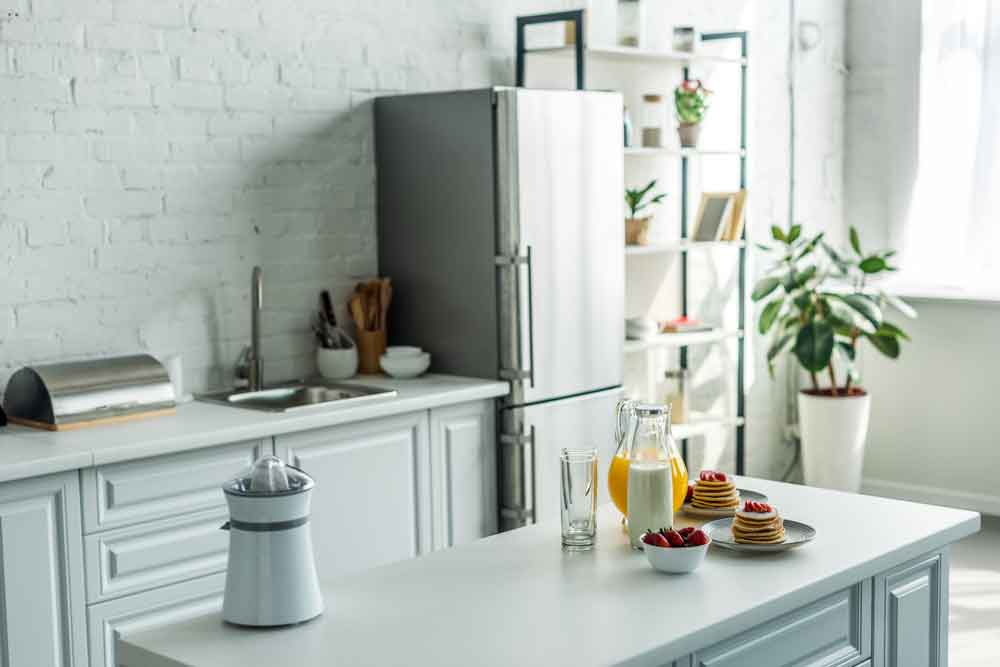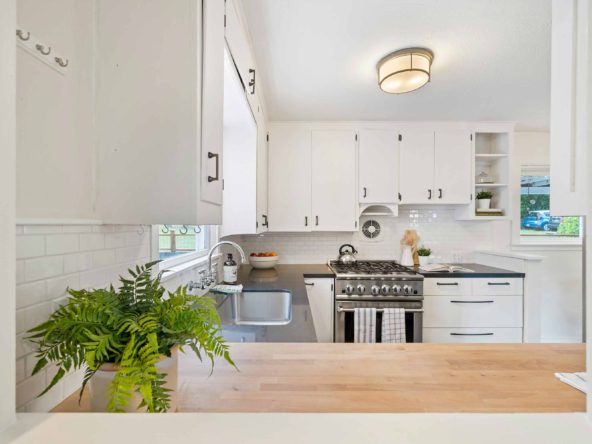New countertops have always been a major contributor to kitchen makeovers, and the range of choices has never been greater. Beyond laminates and tile, or natural stone, wood and bamboo, some durable acrylics have become quite popular.
But, there are also newer composite materials that offer advantages. These advantages might make them an ideal compromise between natural and synthetic countertops. These are generically known as solid surface, engineered stone or quartz composite. They also go by many different brand names, and have unique features not found in other surfaces. For example, they tend to be harder and more durable and stain resistant than traditional countertops. This is because they are formed with a combination of natural materials and synthetic bonding compounds. The solid-surface types appear seamless and are made of about 2/3 mineral powders and 1/3 resin. They are also available in a range of colours and designs that sometimes mimic nature (e.g., white marble).
The quartz types are closer to 90% natural stone fragments with about 10% resin, so they are even harder by comparison, although the range of colour and design options is narrower. Nowadays, with so much to consider, it’s wise to consult a countertop expert about your material options and installation costs.
Debbie Tsintaris is a LOCAL REALTOR® in the Waterloo Region offering expert real estate services in Waterloo and surrounding areas in Southwestern Ontario.




